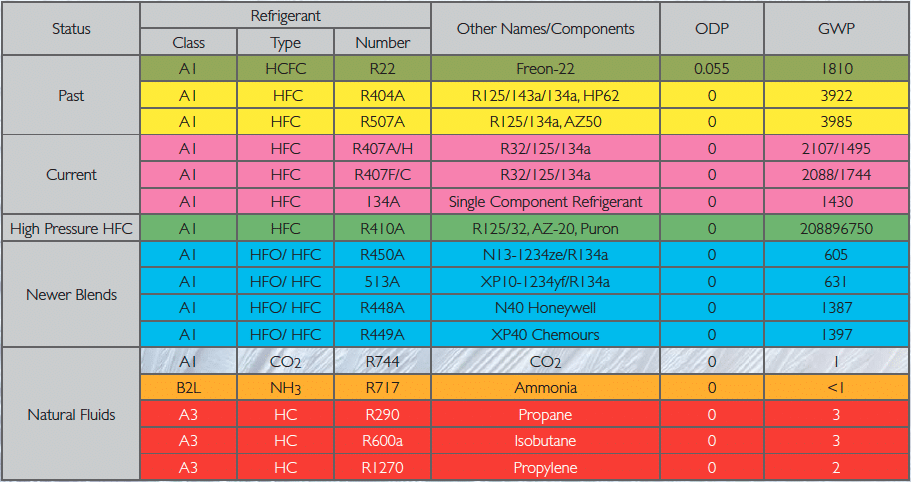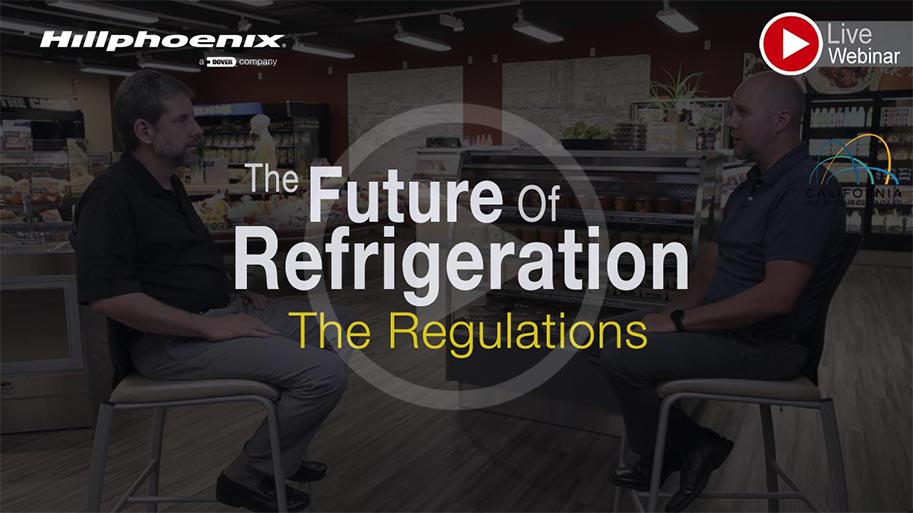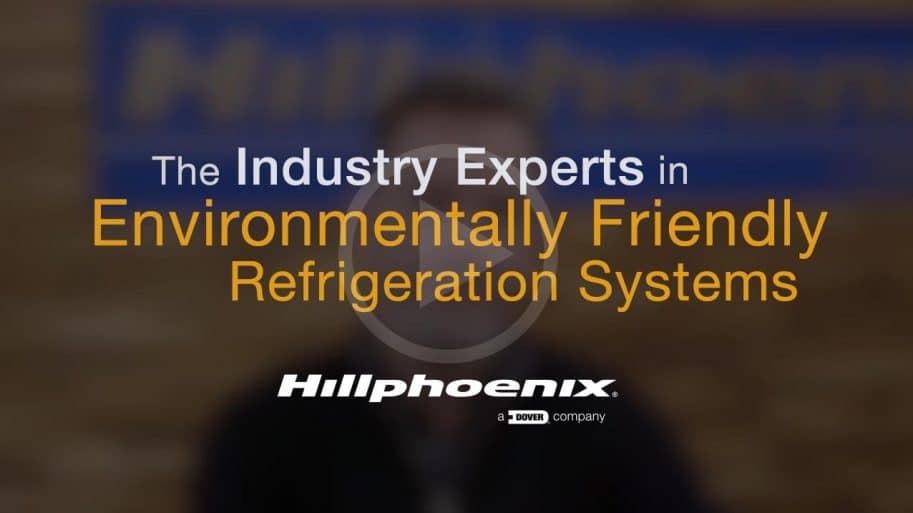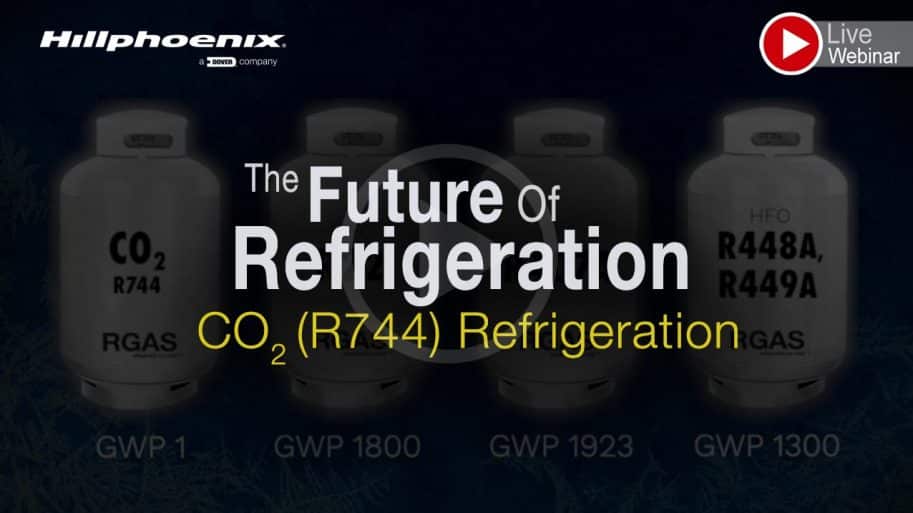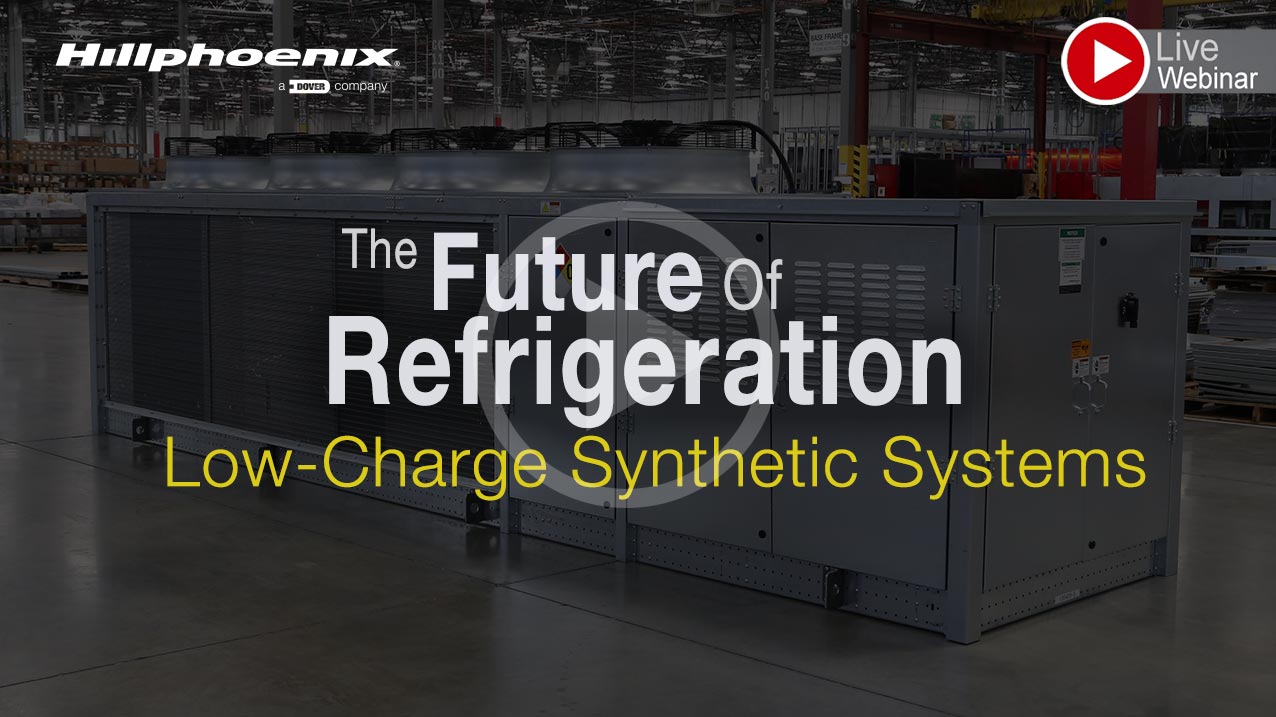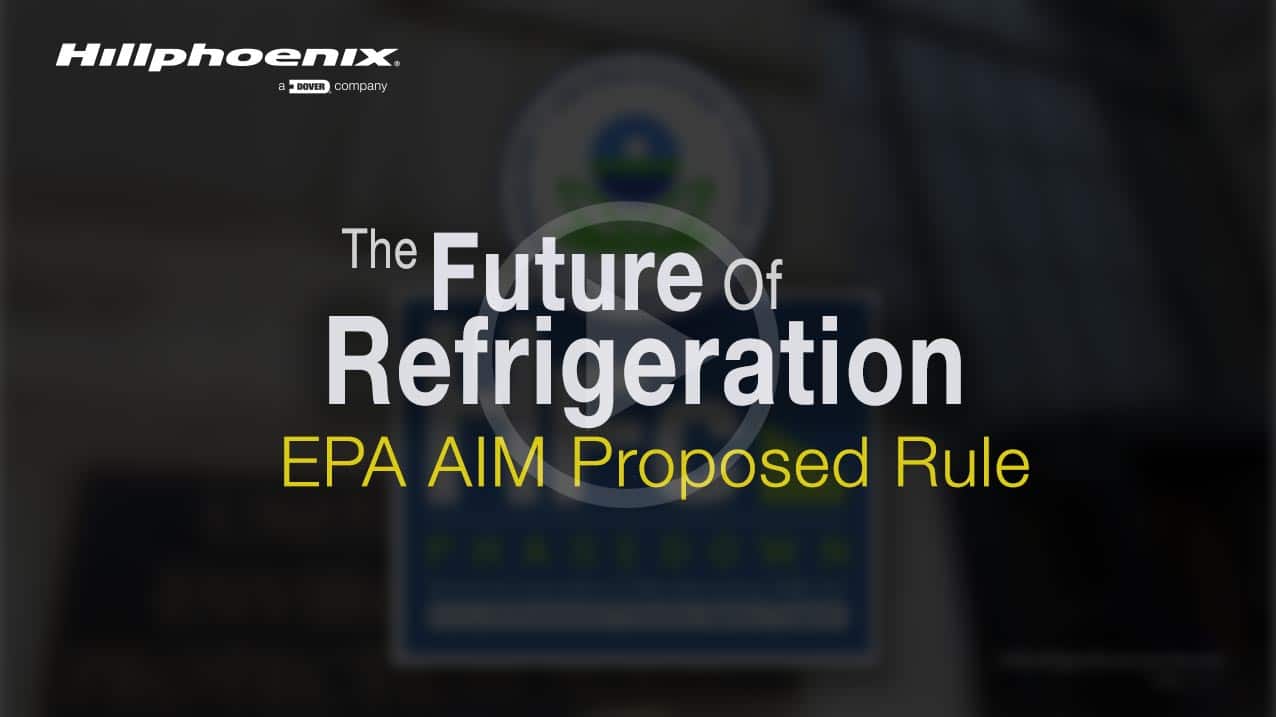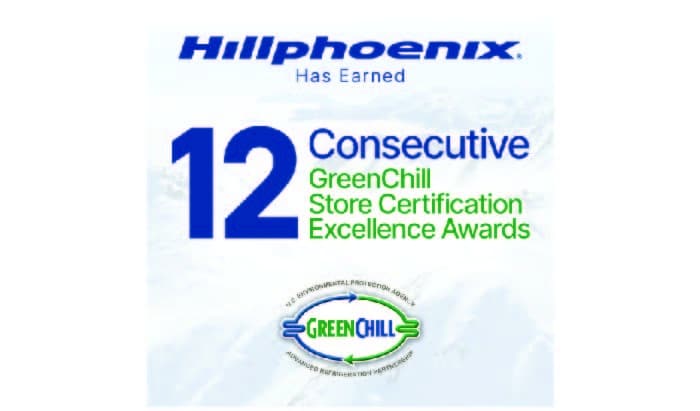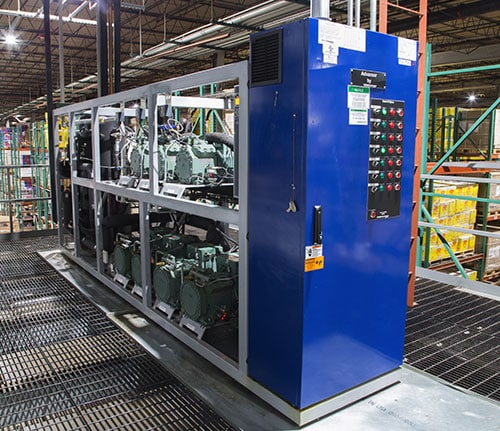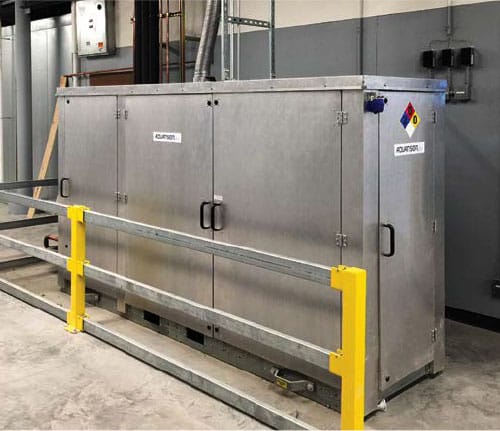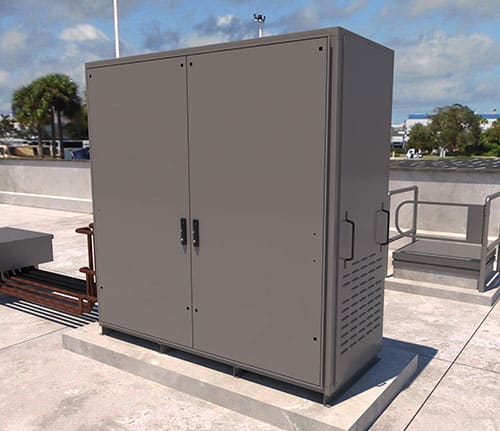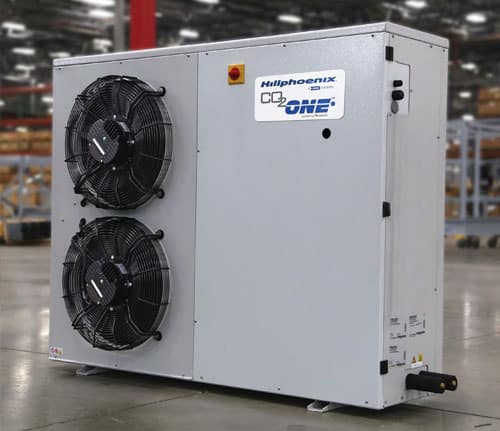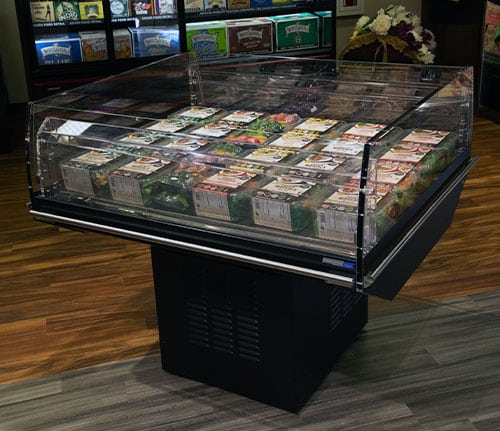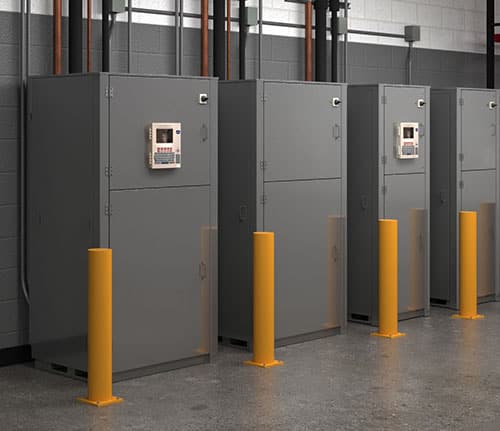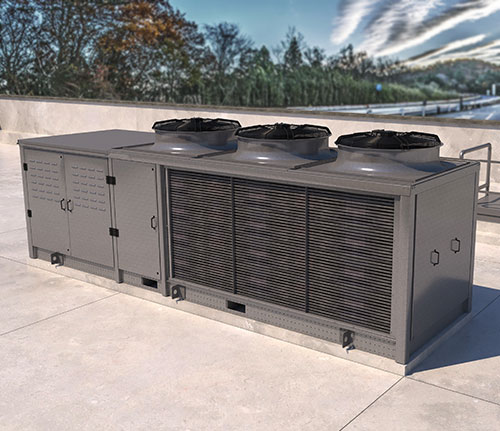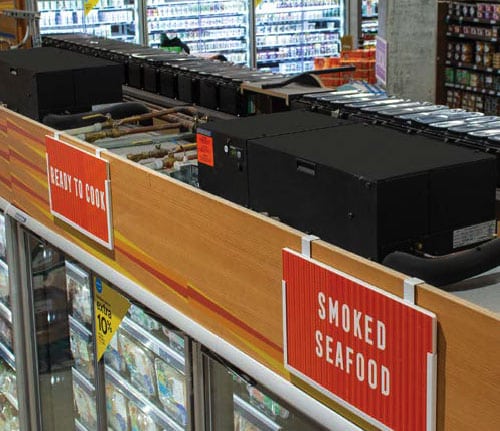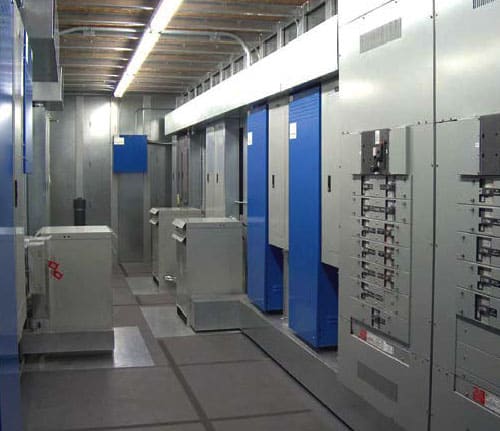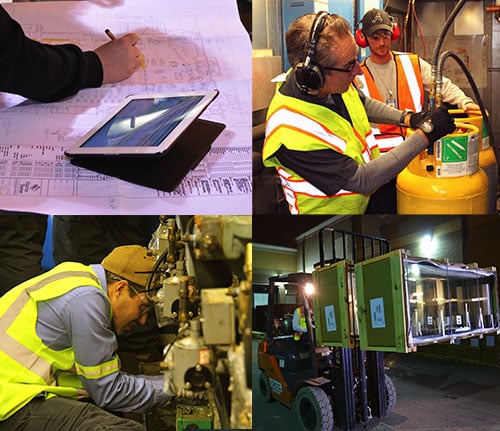The Future of Refrigeration
Regulations, equipment, timelines…
Are You Ready?
We can help you build a compliance plan!
Alternative refrigerants: the time has come to stop wondering and make a decision!
In the world of refrigeration, the looming impact of current regulations and the certainty of more restrictive and complex refrigerant and environmental impact regulations have many in our industry frozen by indecision, wondering “what’s next?”
WHAT’S IT ALL ABOUT?
Simply, the refrigeration industry is in constant transition. New regulations, new environmental concerns, new ways to safeguard the health of the planet and all who inhabit it are coming. Some are already here. Some are already on the calendar for tomorrow.
What’s the retail food industry doing to meet an uncertain future? Today, the industry’s chosen commercial refrigerant in American supermarkets is R-404A. It’s a hydrofluorocarbon (HFC) that is better than the refrigerants it replaced — but it is still a greenhouse gas.
This poses a dilemma for retail customers. Do nothing in the face of certain change to come later. Or, make a choice from two options: update/retrofit existing equipment or build new.
UPDATE YOUR REFRIGERATION SYSTEM OR BUILD NEW?
The need to choose will come sooner or later — for everyone. Even though HFC refrigerants like 404A have no ozone depletion potential, they are a greenhouse gas. Their use and production are already highly regulated by the EPA.
Updating or retrofitting may be a viable alternative to some. A tad less disruptive and perhaps more economical in the short term. However, in the long run, it could cost a lot more depending on future regulations.
Building new on the other hand, though initially more expensive, replaces leaking, problematic systems with new equipment. Plus, more importantly, it allows for the use of natural refrigerants like CO2 and hydrocarbons such as propane. Natural refrigerants are less expensive and abundant. They have zero impact on the environment and are more efficient, more economical and an all-around excellent choice for the future.
No matter what your choice, the answer is always Hillphoenix. We’ve been offering low GWP, ODP solutions for years. We know how to do this because our expertise is grounded in time-tested experience. If you choose to upgrade or retrofit, we’ve got you covered with one of the most comprehensive product offerings in the industry. Choose to build new and HIllphoenix is still the answer. We can cover everything from simple rack replacement to a complete, from-the-ground up refrigeration system.
REFRIGERATION REGULATIONS AT A GLANCE
CARB
These regulations were passed by CARB in December 2020.
1. Refrigerants with a GWP greater than 150 will not be allowed in new, stationary refrigeration systems charged with more than 50 pounds.
Compliance Date 1/1/2022
2. Refrigerants with a GWP greater than 750 will not be allowed in chillers (including process chillers) greater than -15 °F and ice rinks. Compliance Date 1/1/2024
3. Companies owning or operating 20 or more retail food facilities with refrigeration systems charged with more than 50 pounds must collectively meet a 2,500 GWP average or 25% percent greenhouse gas emission potential (GHGp) reduction over 2018 levels, by 2026. Compliance Date 1/1/2026
Companies owning or operating 20 or more retail food facilities with refrigeration systems charged with more than 50 pounds must collectively meet a 1,400 GWP average or 55% greenhouse gas emission potential (GHGp) reduction over 2018 levels, by 2030.
Compliance Date 1/1/2030
Companies owning or operating fewer than 20 retail food facilities with refrigeration systems charged with more than 50 pounds must collectively meet a 1,400 GWP average or 55% greenhouse gas emission potential (GHGp) reduction over 2018 levels, by 2030.
Compliance Date 1/1/2030
EPA & SNAP
1. Phase-out of class II ozone-depleting substances. Ban on remaining production and import of HCFC-22 and HCFC-142b.
While the US phased out CFCs and halons in the mid 90s, HCFC-22 (also called R-22) and HCFC-142b are the next two HCFCs on the chopping block.
• After 2020, the servicing of systems with R-22 will rely on recycled or stockpiled quantities.
• As of January 1, 2030, the ban on remaining production and import of all HCFCs will be complete.
2. Clean Air Act Revised Section 608 Refrigerant Management Regulation. This rule modifies refrigerant management regulations for substitute refrigerants, such as HFCs.
Department of Energy
1. 20% to 40% energy reduction for WICFs with medium-temp condensing and self-contained systems. Penalties can be levied against manufacturers and suppliers who don’t meet the minimum requirements. Compliance Date 1/1/20
2. 20% to 40% energy reduction for WICFs with low-temp condensing systems, low-temp, self-contained units and medium- & low-temp unit coolers. Compliance Date 7/10/20
U.S. Climate Alliance
The United States Climate Alliance is a bipartisan coalition of 25 governors committed to reducing greenhouse gas emissions consistent with the goals of the Paris Agreement. The Alliance is led by state governments and is focused on state-to-state cooperation to accelerate the deployment of climate solutions needed to help each achieve their climate goals.
1. Implement policies that advance the goals of the Paris Agreement, aiming to reduce greenhouse gas emissions by at least 26-28% below 2005 levels. Compliance Date 1/01/25
2. Track and report progress to the global community in appropriate settings, including when the world convenes to take stock of the Paris Agreement.
3. Accelerate new and existing policies to reduce carbon pollution and promote clean energy deployment at the state and federal level.
Natural Resources Canada
1. Energy efficiency improvements for commercial refrigerator-freezers and commercial freezers. Manufactured on or after 3/27/2017
2. Energy efficiency improvements for chillers. Manufactured on or after December 31, 2019.
3. Energy efficiency improvements for walk-in cooler and freezer, an enclosed storage space that has an area of less than 278.71 m2 (3,000 square feet).
Energy efficiency improvements for dedicated condensing refrigeration system.
Manufactured on or after June 5, 2017 for walk-in door assemblies and walk-in panels.
Manufactured on or after January 1, 2020 for walk-in cooler dedicated condensing refrigeration systems.
Manufactured on or after July 10, 2020 for walk-in freezer dedicated condensing refrigeration systems and walk-in cooler or walk-in freezer unit coolers.
REFRIGERATION TECHNOLOGY TODAY & TOMORROW.
Our experts have years of experience dealing with the confusing and sometimes conflicting regulations from the EPA, the Department of Energy, the U.S. Climate Alliance, the Natural Resources of Canada and especially CARB. (California’s regulations are the strictest in the industry.) We make compliance easy to understand and implement. We are the industry’s preeminent refrigeration supplier with food retail and industrial installations all across the globe. View our 12th GreenChill Award blog post and our products, systems, and services below to back up such a bold claim.
Hillphoenix has installed over 14,000 CO2 Booster systems globally. We have earned eleven consecutive EPA GreenChill Store Certification Excellence Awards and have educated over 40,000 industry professionals and organizations on natural refrigeration systems.
And, in addition to being a founding partner of the GreenChill program, Hillphoenix helped foster the founding of NASRC, a non-profit organization committed to reducing greenhouse gases and helping retailers transition to environmentally friendly refrigerants.
We have, by far, the industry’s most comprehensive environmentally friendly product offering.
Email info@hillphoenix.com or call 770-285-3264.
